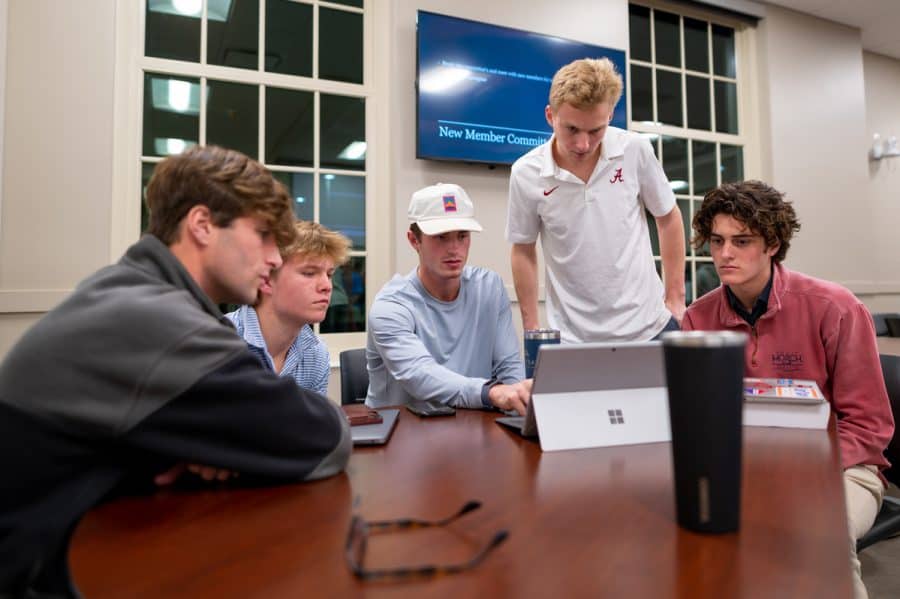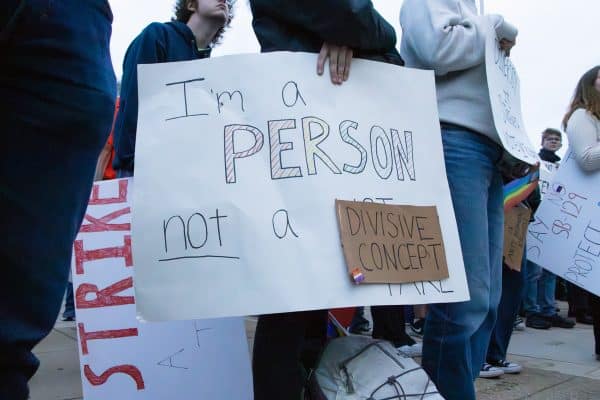Opinion | Group projects in college are unnecessarily stressful
April 19, 2023
Regardless of which year of college you are in, it is a safe assumption that you have participated in a group project during your time here at The University of Alabama.
From my own experience, most professors assign group work to ensure students gain group collaboration skills similar to what they would need in real-life situations after college.
Data from Zippia, a career research firm, has shown top-performing workers spend around 45% of their day working individually, another 45% working collaboratively and the remaining 10% of their time learning and socializing.
I do believe collaboration is important and there are many benefits to doing so. However, the structure of group projects in a college environment also has its flaws.
Teamwork is challenging regardless of circumstances or environment, but there are certain challenges I have encountered while in college that add unnecessary stress to the process.
I remember a particular project I had my sophomore year in a group which consisted of five other students. From the beginning, I could tell that this project would solely rely on myself and another person who wanted to take initiative.
Each person was assigned their tasks for our presentation and we tried to meet multiple times on Zoom to accommodate everyone’s schedules. Regardless, many people in the group did not start working on their parts until a few hours before the project deadline.
This resulted in our presentation not being very cohesive when we had to present in front of our entire class.
The main purpose of group projects is to collaborate with your peers to achieve a common goal. While this may seem simple, in reality, you will come to find out just how hard it is to coordinate with other students and how stressful it can become.
It may surprise some to learn that many students don’t necessarily care about their grades and expect others to pick up where they fall short.
It is common to have one or two people in your group that procrastinate or do not participate in, or even reach out about, the project you have been assigned.
Procrastination is an issue almost every person faces. It is understandable that as students, we sometimes feel burnt out. However, this excuse shouldn’t come at the expense of your group or the collective work that needs to be accomplished collectively.
An additional factor that plays into these challenges is the amount of time students have. College students have a wide range of time constraints, including clubs, work, sports and other classes. Extracurriculars and life outside of school can make it difficult to find times to meet with your group outside of class.
This becomes especially frustrating when the project is ongoing throughout the semester. Having to constantly accommodate to other people’s schedules while trying to uphold your own as well can easily create an atmosphere of confusion and an uncomfortable work environment.
“In my experience, it’s very difficult to find times to work on projects together. Sometimes I end up doing the work by myself just so the group will pass. I’m paying for my education and my grades shouldn’t be impacted by others,” said Jamie Causey, a sophomore majoring in kinesiology.
Despite the structure of group projects being a little difficult to manage, I do believe there are ways they can be made more equitable.
To improve communication between students and professors, group projects should mostly be done in smaller seminar-style classes.
“It is better to do group projects in smaller classes with colleagues who are more familiar with your major. Group projects are not as practical for larger intro level classes because students with different majors would be working on a project that is not as applicable for their future careers, making the structure not as cohesive,” said Katerina Georgious, a senior majoring in political science.
Additionally, this should allow professors to stay updated on how the group is doing as a whole and check in with them periodically, which would arguably be harder to accomplish in a larger class setting.
Some students feel awkward approaching their professors about concerns regarding their group or project, which could lead them to not contact them at all. To make the semester or project successful, all professors should make it clear from the start that they are available to help and listen.
After experiencing my own struggles and hearing other students express their opinions about group projects, I still believe that this topic is overlooked. There is always room for improvement in the design of our classes and assignments, and I would encourage professors to listen to more student opinions and recommendations we give at the end of the semester.
I recognize that no one particularly enjoys doing group projects in college; however, the more effort you put into it, the more you will get from the experience, and your group members will definitely appreciate your efforts.











